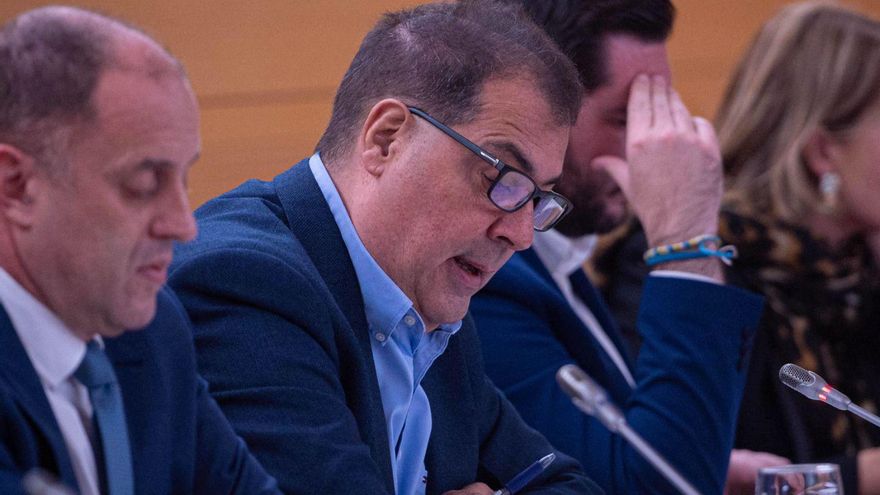Tenerife Cabildo Increases Budget by €273 Million in First Half of Year

The Cabildo de Tenerife has increased its budget by €273 million during the first half of the year. The initial accounts have grown by over 20.5%, thanks to cash flow remanents – the difference between liquid funds and pending receivables and payables – along with the six credit modifications approved from January to July 2025.
The approved budget for the island corporation – excluding dependent bodies and entities – was €1,057,679,000 and took effect on 1 January this year. By 31 July, with the incorporation of remanents from the previous financial year and the modifications approved by the Plenary, it has risen to €1,330,718,331. Consequently, there has been an increase of over €273 million over seven months.
Details of the Budget Increase
Sources from the Finance department indicate that “this includes the incorporation of cash flow remanents.” They explain that “every year the remanents are included, generally those linked to affected financing.” This refers to the financial resources of a public entity that are earmarked for specific purposes and cannot be freely used for general expenses.
This includes “funding from European sources and the incorporation of the €70 million loan approved in December 2024.” All of this aligns with the Economic and Financial Plan already defined by the Cabildo, which the institution must adhere to due to exceeding the fiscal spending rule by €177 million.
Modifications and Opposition Discontent
Just two months after the budget was approved, the first credit modification occurred in February, amounting to €14.6 million. The most recent modification was during the Plenary session in July, where the PSOE abstained from a total of €48.6 million, of which €33.6 million is allocated for the repayment of debt under the agreement with the state agency Aguas del Estado (Acuaes), as reported by the island’s Finance Director, Juan Carlos Pérez Frías.
The Cabildo de Tenerife’s budget grew by 20.5%, €273 million, by July
It was also noted that the settlement of the surplus from the Canarian financing block generated an additional income of €10 million, with the majority, €9.3 million, allocated to the dependency agreement, which is set to be “signed” shortly.
The PSOE, the main and practically sole opposition force, has seen all its amendments to the 2025 budget and the aforementioned six credit modification files rejected. Besides the total amendment to the accounts for the financial year, “we presented 103 partial ones aimed at improving, balancing, and reorienting” the accounts. Their value was slightly over €150 million, intended to boost the island’s housing policy, support the municipalities through various programmes, municipal employment plans, improve the sewage network, comprehensive waste management, and reduce water loss in municipal conduits and reservoirs, along with urgent and priority construction plans. They also aimed to enhance the staffing of the Cabildo, particularly in the areas of Housing, the Insular Water Council of Tenerife, Balten, and the Comprehensive Support Office for Municipalities. Afonso recalls that “all were rejected, although some have since been incorporated as proposals from the governing group.”
Rejection of Socialist Amendments
In the six credit modifications, the Socialist Group submitted amendments worth €216 million (1); €215 million, in 37 amendments (2); €216 million, in 38 (3); €125 million, in 37 (4); €126 million, in 38 (5); and €63 million, in 35 (6). Afonso highlights and summarises the outcome: “All rejected.” The Socialist spokesperson reminds that these modifications relate to the budget increase so far this year, alongside the incorporation of budgetary remanents “that had affected financing in the year 2024, were not executed that year and were incorporated throughout last March.”
The PSOE expresses concern over the “low execution this year, considerably worse than last year’s.” As of 31 July, the execution rate stands at “39.77% compared to 44.32% in the 2024 fiscal year.”
Sources from the Finance department refute this: “The Cabildo executed 100% of the computable spending allowed in 2024 and exceeded it because we had to address real urgencies on this Island. Not out of whim, but out of responsibility.” They defend that “we did not execute more because we could not, as we are bound by an economic-financial plan that sets a limit.” In conclusion, they maintain that “this year we are halfway through the fiscal year and the current levels of execution are within the framework set by the economic-financial plan itself.”
Preparation for the 2026 Budget
The Cabildo de Tenerife has already started preparing its budget for 2026, having gained approval from the Government Council regarding the criteria, guidelines, and schedule. The insular president, Rosa Dávila, asserts that “it will be a budget focused on stability,” as the Cabildo “is a well-managed institution, compliant in terms of deficits, debt, and payment periods to suppliers.” The aim is to approve it in time for it to take effect at the beginning of 2026.













